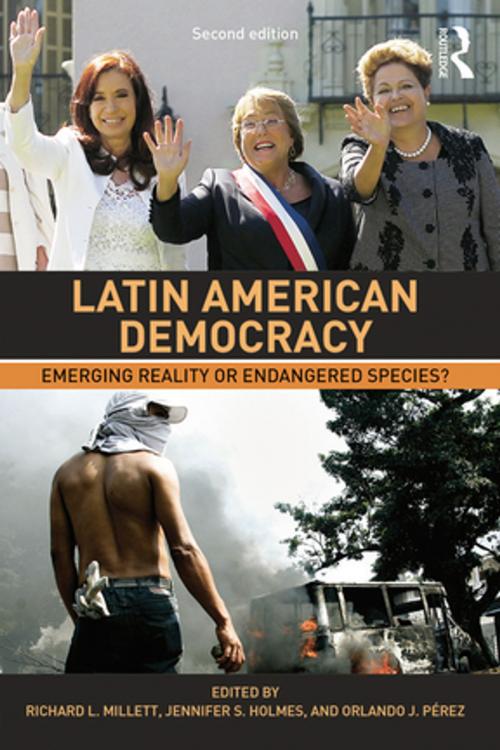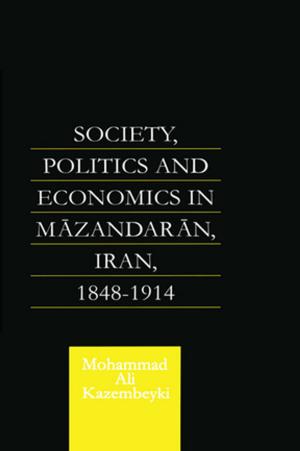Latin American Democracy
Emerging Reality or Endangered Species?
Nonfiction, Social & Cultural Studies, Political Science, International, Foreign Legal Systems| Author: | ISBN: | 9781317908418 | |
| Publisher: | Taylor and Francis | Publication: | March 2, 2015 |
| Imprint: | Routledge | Language: | English |
| Author: | |
| ISBN: | 9781317908418 |
| Publisher: | Taylor and Francis |
| Publication: | March 2, 2015 |
| Imprint: | Routledge |
| Language: | English |
More than thirty years have passed since Latin America began the arduous task of transitioning from military-led rule to democracy. In this time, more countries have moved toward the institutional bases of democracy than at any time in the region’s history. Nearly all countries have held free, competitive elections and most have had peaceful alternations in power between opposing political forces. Despite these advances, however, Latin American countries continue to face serious domestic and international challenges to the consolidation of stable democratic governance. The challenges range from weak political institutions, corruption, legacies of militarism, transnational crime, and globalization among others.
In the second edition of Latin American Democracy contributors – both academics and practitioners, North Americans, Latin Americans, and Spaniards—explore and assess the state of democratic consolidation in Latin America by focusing on the specific issues and challenges confronting democratic governance in the region. This thoroughly updated revision provides new chapters on:
- the environment,
- decentralization,
- the economy,
- indigenous groups,
- and the role of China in the region.
More than thirty years have passed since Latin America began the arduous task of transitioning from military-led rule to democracy. In this time, more countries have moved toward the institutional bases of democracy than at any time in the region’s history. Nearly all countries have held free, competitive elections and most have had peaceful alternations in power between opposing political forces. Despite these advances, however, Latin American countries continue to face serious domestic and international challenges to the consolidation of stable democratic governance. The challenges range from weak political institutions, corruption, legacies of militarism, transnational crime, and globalization among others.
In the second edition of Latin American Democracy contributors – both academics and practitioners, North Americans, Latin Americans, and Spaniards—explore and assess the state of democratic consolidation in Latin America by focusing on the specific issues and challenges confronting democratic governance in the region. This thoroughly updated revision provides new chapters on:
- the environment,
- decentralization,
- the economy,
- indigenous groups,
- and the role of China in the region.















